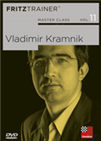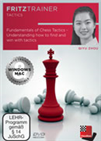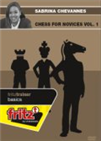All proceeds go to charity
The sole purpose of the "Play for Russia" tournament, played on Lichess.org, was to raise funds to support the country's regional hospitals and health workers fighting the Covid-19 epidemic. The Russian Chess Federation announced that they will continue to accept donations until the end of the week (see how you can help here) while so far 24,670,000 roubles have been collected, or around $335,000 USD.
Each of the eight participants, representing a different region, destined his share of the money raised to a different organization. The winner of the event, Alexander Grischuk, donated his share to a charity institution dealing with the problem of homelessness in Russia.

Photo taken from homeless.ru, the official website of the organization Grischuk decided to support with his participation
Kramnik dominates the round-robin
Although Vladimir Kramnik stated that all participants were the initiators of the charity event, everything seems to indicate, especially after Grischuk's post-tournament interview, that the former world champion was the main force behind the initiative. Kramnik was not only strong on the organizational side of things but also on the sportive component, as he was the clear winner of the double round-robin section.
The veteran from Tuapse scored six consecutive wins from rounds six to eleven before convincingly finishing first on 10½ out of 14 despite a penultimate-round loss against Evgeny Tomashevsky. Second-placed Peter Svidler ended 1½ points behind Kramnik, while Grischuk and Tomashevsky entered the knockout phase after collecting 8 out of 14 points.
Kramnik showed great tactical alertness in simple-looking positions, a great skill particularly in blitz chess — as has been proved by Anatoly Karpov, who continued to post strong results in this format many years after his retirement. Against Grischuk in round eleven, for example, the 44-year-old quickly noticed his opponent had blundered in a drawish endgame:
 This DVD allows you to learn from the example of one of the best players in the history of chess and from the explanations of the authors (Pelletier, Marin, Müller and Reeh) how to successfully organise your games strategically, consequently how to keep y
This DVD allows you to learn from the example of one of the best players in the history of chess and from the explanations of the authors (Pelletier, Marin, Müller and Reeh) how to successfully organise your games strategically, consequently how to keep y
White thought playing 48.Nd5 was a way to quickly simplify the position, counting on 48...Nxd5 49.Bc4 pinning the piece. Instead, Black can win immediately with 48...Nc6+ 49.Kc4 Nd6+ and the knight is lost.
Despite finishing day one as the leader, Grischuk made more mistakes like the one seen above and barely made it to the semi-finals on day two, winning in round fourteen while Sergey Karjakin lost against Svidler — Karjakin almost became one of the final four thanks to a strong performance in the second half of the round-robin section.
Standings after Round 14
| Rk. |
Name |
Blitz rating |
Points |
TPR |
| 1 |
Kramnik, Vladimir |
2797 |
10½ |
2913 |
| 2 |
Svidler, Peter |
2754 |
9 |
2826 |
| 3 |
Tomashevsky, Evgeny |
2765 |
8 |
2776 |
| 4 |
Grischuk, Alexander |
2695 |
8 |
2766 |
| 5 |
Karjakin, Sergey |
2766 |
7½ |
2749 |
| 6 |
Inarkiev, Ernesto |
2639 |
5½ |
2653 |
| 7 |
Nepomniachtchi, Ian |
2785 |
5 |
2613 |
| 8 |
Riazantsev, Alexander |
2497 |
2½ |
2474 |
All games - Round-robin section
Semi-finals: Grischuk beats Kramnik in Armageddon
The semis were not played simultaneously, and the first match-up was the showdown between Grischuk and Kramnik. The players traded blows with black before going to Armageddon. Grischuk needed a win in the tiebreaker as he had the white pieces. He went for it and got a second straight win to advance to the final. Kramnik resigned after 40.Nh5:
 What’s the easiest way to win a chess game? We all know finding a good tactic in a game can let you win a point immediately. Therefore, Fundamentals of Tactics is an excellent choice for you if you wish to learn how to start finding tactics in your games!
What’s the easiest way to win a chess game? We all know finding a good tactic in a game can let you win a point immediately. Therefore, Fundamentals of Tactics is an excellent choice for you if you wish to learn how to start finding tactics in your games!
The threat of exchanging everything and forking on f6 prompted the former world champion to resign. Grischuk later called his two consecutive wins of the semi-finals the "cleanest" games he played in the tournament.
Select an entry from the list to switch between games
Later on, Tomashevsky defeated Svidler 1½:½, showing strong technical skills to beat his rival from Saint Petersburg. In game one, he entered a slightly superior rook endgame, the kind that is particularly difficult to defend against in blitz — especially when facing such a strong technical player:
Tomashevky won this endgame and drew game two to reach the final.
Final: A misleading result
The deciding match of the event was a four-game encounter which saw Grischuk getting tournament victory before playing game four, as he already had a 3:0 lead. However, as stated by the winner himself, the face-off was "very complex". Taking advantage of your opponent's mistakes is a key ability in blitz though, and the former world blitz champion is not one to let these opportunities slip away easily.
In game one, Tomashevsky allowed the black queen to enter his position decisively:
 This DVD is for anyone who knows the rules of chess but would like to be able to improve their game with some specific tactics and strategies. It builds on the basic principles of chess that should have already been learnt.
This DVD is for anyone who knows the rules of chess but would like to be able to improve their game with some specific tactics and strategies. It builds on the basic principles of chess that should have already been learnt.
Black is already better, but 30.Rxd5 loses the game more quickly than 30.Bf2, going for a passive defence. After 30...Qxg5+ 31.Kh2 Qg3+, there is no way to save the game.
Links
























